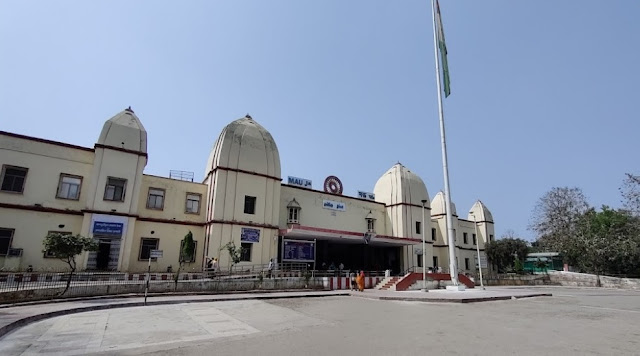Hooghly District
Hooghly district is a district in the state of West Bengal in India. The district is named after the Hooghly River. The headquarter of the district is located at Hooghly-Chinsura. It comes under Burdwan Division. As part of the Bengali state of Bhursut, the district has a rich heritage of thousands of years.
 |
| Hangseswari Temple |
Hooghly is one of the few places in India where the remains and culture of many civilizations like Portuguese, Dutch and British are still visible. Hooghly today is a prosperous river port and is only a few kilometers away from the state capital Kolkata.
 |
| Bandel Church. |
Area
The area of the district is spread over 3,149 km2. The district comprises of four subdivisions namely: Chinsura Sadar, Serampore, Chandannagar and Arambagh. The district shares its borders with Hooghly, Howrah Bardhaman, Bankura and Medinipur districts. There are 23 police stations, 18 development blocks, 12 municipalities and 210 gram panchayats in the district. Balagarh, Chinsura-Mogra, Dhaniyakhali, Pandua, Polba-Dadpur, Haripal, Singur, Tarakeswar, Chanditala, Jangipara, Shrirampur Uttarpara, Arambagh, Khankul, Goghat and Pursurah are the development blocks of the district.
 |
| Hooghly Imambara |
Assembly Area
The district is divided into 18
assembly constituencies. Jangipara, Chanditala, Uttarpara, Serampore and
Champadani constituencies, along with two assembly constituencies in Howrah
district, Serampore (Lok Sabha constituency). The Hooghly (Lok Sabha
constituency) constitutes the Chandranagar, Singur, Haripal, Chinsurah,
Bansberia, Polba and Dhaniyakhali constituencies. Tarakeswar, Pursurah,
Khankul, Arambagh and Goghat constituencies are part of Arambagh (Lok Sabha
constituency), which comprises two assembly constituencies in Paschim Medinipur
district. Balagarh and Pandua constituencies are part of the Katwa (Lok Sabha
constituency), which comprises five assembly constituencies in Bardhaman
district.
Population
According to the 2011 census Hooghly
district has a population of 55,19,145. Hooghly district has a sex ratio of 958
females for every 1000 males.
Economy
Hooghly is one of the most
economically developed districts in West Bengal. It is the main center of jute cultivation;
jute industry and jute trade in the state. Jute mills are located on the banks
of river Hooghly at Tribeni, Bhadreshwar, Champadani and Shrirampur. There are
many industrial complexes in Uttarpara.
Education
The literacy rate of the district is
82.55%. Hooghly district has 2992 primary schools, 408 high schools, 127 higher
secondary schools, 22 colleges and 6 technical institutions. Hooghly Collegiate
School, Hooghly Branch Government School, Serampore Union Institution, Bandel
St. John's High School, Arambagh High School, Techno India Group Public School,
Vision International School, Don Bosco School, St. Joseph's Convent School,
Hooghly Mohsin College, Serampore College, Hooghly Engineering and Technology
College, Techno India Hooghly, Chandranagar Government College, Bidhan Chandra
College are some of the best educational institutions in the district.
Attraction
This is a very interesting place for
those who are interested in history. A church built by Portuguese traders in
1599 still exists here now known as Bandel Church. This is the first church in
Bengal. Taraknath Temple, Serampore Rath Yatra, Neelkuthi, Siddheshwari
Kalibari, Bose House, Vrindavanchandra Math, Hangeshwari Temple, Rajballavi
Temple, Antpur, Bali Dewanganj, Itachuna Rajbari, Aqua Marina, Chuti Park, Baba
Taraknath Temple etc. are the main attractions of this place.
How to Reach Hoogly District
The railway of the district is under
Howrah division. The railway communication of the district, especially in the
suburban area, is highly developed. Hooghly has four junction stations: Bandel
Junction railway station, Dankuni Junction railway station, Sheraphuli railway
station, Serampore and Kamarkundu.






Comments